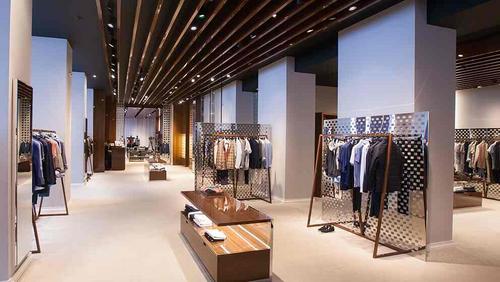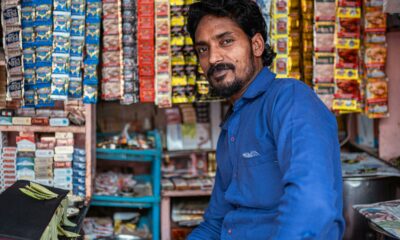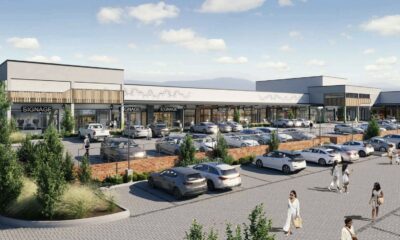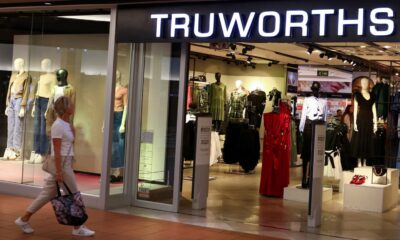Business
Why SA’s Clothing Chains Are Betting Big on Brick-and-Mortar Stores, Even as the Economy Stalls

In a country where GDP is crawling, South Africa’s biggest fashion retailers are charging ahead.
You wouldn’t expect bold moves from retail giants in a sluggish economy. But South Africa’s leading clothing chains, Pepkor, The Foschini Group (TFG), and Mr Price — are doing just that. Together, they’re planning to open up to 600 new stores in the next year, even as the National Treasury dials down the country’s economic growth forecast to just 1.6%.
It’s a striking show of confidence in a country grappling with load shedding, weak consumer spending, and rising prices. So what gives?
Looking Beyond the GDP Headline
Retailers aren’t ignoring the reality. The official numbers may paint a dim picture — particularly after economic uncertainty linked to global trade tensions, including those sparked by former US President Donald Trump — but that’s not the whole story.
According to TFG CEO Anthony Thunström, the informal economy tells a very different tale. “There’s a massive amount of development happening outside your major metro areas,” he says. “A lot of it is cash-based, and it often isn’t reflected in official GDP figures.”
In other words, what the data misses, store owners see firsthand: vibrant township markets, rapidly growing peri-urban zones, and shoppers eager for value.
It’s Not About Quantity, It’s About Smart Expansion
Still, retailers are walking a tightrope. There’s no space race here. Mr Price CEO Mark Blair put it bluntly: “It’s not just growth, it’s quality space.” The Durban-based group turned down 70% of potential locations last year, preferring profitability over footprint.
At the same time, growth is being driven not just by core brands but by new acquisitions and underrepresented sub-brands in areas with room to grow. Think discount lines in untapped regions or affordable fashion targeting value-conscious consumers.
Pepkor, Africa’s biggest clothing retailer by volume, is placing heavy emphasis on discount apparel — the very products low- to middle-income South Africans continue to seek out, especially with fuel and food prices pinching budgets.
Why Food Retailers Are Hitting Pause
While fashion retailers are forging ahead, supermarket chains like Pick n Pay and Spar are treading more cautiously. They’ve signalled muted store growth in the coming year, reflecting tighter margins in food retail and consumer belt-tightening.
This contrast between sectors shows how non-essential retail when strategically priced may actually be more agile in responding to South Africa’s uneven growth map.
The Online Shift Is Still Gaining Steam
There’s also a digital angle. TFG’s online platform Bash now accounts for 6% of local sales a figure it expects to nearly double in the next few years. But this isn’t replacing brick-and-mortar stores; it’s complementing them.
“Stock doesn’t necessarily have to sit in fully lit stores anymore,” Thunström noted. With fulfilment increasingly handled by dark stores and distribution centres, physical outlets can be leaner, smarter, and more profitable.
Even more surprising? Bash has already turned a profit two years ahead of schedule suggesting that the digital arm is well on its way to becoming a long-term growth pillar.
Public Reaction: Skepticism, But Also Support
Online, South Africans have mixed feelings. Some ask why retailers are investing in stores instead of solving bigger problems like load shedding or worker pay. Others applaud the move as a vote of confidence in townships and rural areas that are often overlooked.
On social media, a TikTok user from Limpopo wrote, “We’ve waited long enough for these brands to come here. We buy their clothes anyway, just not always in our own towns.”
A Bigger Story Than Just Fashion
At first glance, it may seem like just another business expansion story. But look closer, and this is about something bigger: a changing map of South African retail, where economic resilience is showing up in surprising places. It’s also about retail’s role in job creation, economic mobility, and recognising value in communities too often left behind.
Whether these bets pay off depends on how well retailers listen to local markets — and how ready they are to serve them, not just with trendy clothes, but with trust, convenience, and price sensitivity.
While South Africa’s economy may be stalling, the retail wheels keep turning, especially when driven by those who see beyond the stats.
{Source: Moneyweb}
Follow Joburg ETC on Facebook, Twitter , TikTok and Instagram
For more News in Johannesburg, visit joburgetc.com



























